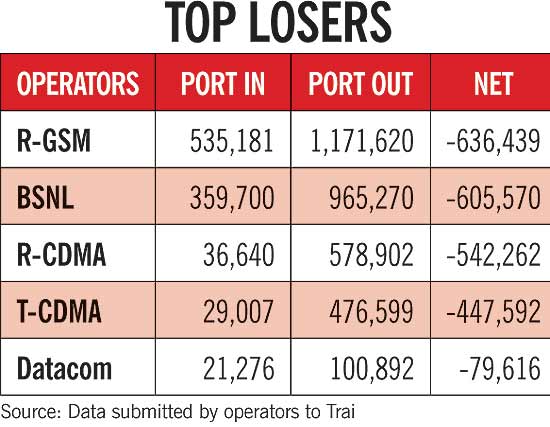The latest statistics reveal that CDMA operators are bearing the brunt of MNP, which allows users to change operators while retaining their number. According to data from telecom regulator Trai, RCom and TTSL’s CDMA businesses have lost the most users to rival operators. While over 579,000 users have opted out of RCom’s CDMA networks since MNP was introduced in January this year, the number for TTSL stood at 476,600. The gain has been miniscule compared to their loss—36,640 customers for RCom and 29,007 for TTSL.

“MNP has exposed the vulnerability of CDMA operators and turned out to be positive for three operators (Idea, Airtel and Vodafone),” says HSBC Securities and Capital Markets analyst Rajiv Sharma. “The biggest challenge for Tata and Reliance is their low-quality subscriber base, which is more of a structural issue than a question of tactics. The poor subscriber quality is driven by their late entry into GSM spectrum (1800 MHz) and poor investment in the (CDMA) network,” says Sharma.
CDMA subscribers have been loyal to service providers not because of choice but because of the high switching cost. “The technology did not allow a subscriber to change the handset or the service provider. With the introduction of MNP, switching cost has dramatically come down and what we are seeing now is a deluge of subscribers opting out of the CDMA platform,” says Ascentius Consulting Principal Analyst Alok Shende.
Analysts are certain that the CDMA subscriber figures have been going down monthly. Besides, according to the CDMA industry association, Association of Unified Service Providers of India (AUSPI), the average revenue per user for CDMA stood at just Rs 68 in March 2011 compared to Rs 105 for GSM users. From the looks of it, CDMA voice telephony does not have much of a future in India.

No comments:
Post a Comment